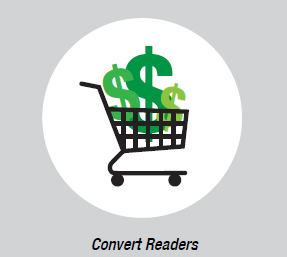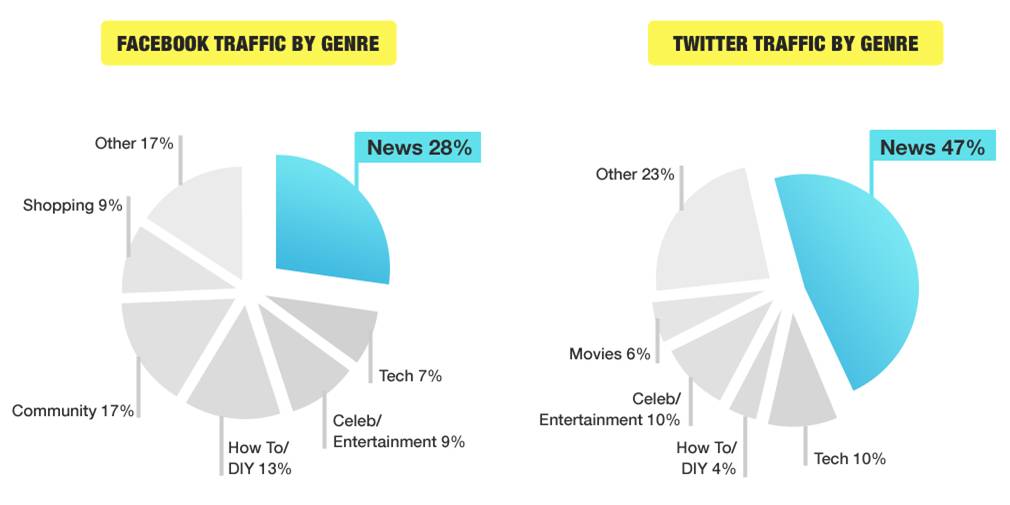Let’s say you’re part of the 82 percent of marketers who are actively invested in a healthy output of website content focused on your users. You understand that “Content Is King” and you’re looking to improve your SEO, social engagement and, ultimately, LEADS via a more effective web content strategy. The aim is to achieve visibility online, cultivate a following and better position you company as a thought leader.
So here’s a thought for the day, and I’ll recommend that you sit down as it may sting a little – though in the end, it’s necessary:
Don’t just talk about your brand. Nobody really cares.
Let it sink in…it’s ok if it takes a minute. Don’t get me wrong because believe me, I get it. Your products and services are unique, you’ve been a leader in your space for years, the head of the leading industry buzz has just named you the top company for the tenth year running…
The thing is, information about your services and accolades has its place and will ultimately play its part. But with respect to initial and ongoing engagement, bragging isn’t going to get the job done.
I want you to consider for a moment what your target audience WANTS. More often than not, it’s not going to be about YOU. It’s about THEM – their interests, their challenges, their world. Put simply, they’re online and they’re rapidly consuming information that’s significantly more of an objective nature when compared to company PR. For instance:
- If you’re a tech company, talk to me about what’s going on in the industry – it’s not as if there’s ever a dull news day.
- If you’re a day trader, what’s going on today in the market? Tell me what’s new so I can make money (and maybe you can help).
- If you’re a sporting goods retailer, run down next season’s key NFL match ups or talk to me about how I can improve my golf swing.
- If you’re a hardware retailer, explain the easiest DIY jobs to manage and when should I hire a professional. Or tell me why it’s important to prime my walls before throwing up a coat of paint.
You need to start thinking about content with respect to information that’s bigger than your brand because THIS is what your audiences are looking for, sharing via social channels and ultimately “buying.” What they’re looking for translates into how you can use content for search; what they’re sharing offers insights on how to leverage content across Facebook, Twitter, LinkedIn, etc; and what they’re “buying” clues you in on how you can build thought leadership, which yields lead generation.
Let’s take a closer look.
What is your audience searching for?
Objective content is what’s being sought out online and what’s commanding the most eyes. According to a study by PEW Research, 75 percent of online Americans regularly access news on the web. Within the B2B space, 80 percent of business decision makers prefer information instead of advertisements, when doing online research. Nearly three-quarter of consumers prefer getting information in the form of articles versus ads.
It may seem like a lot of your best converting website traffic is arriving via searches for your brand, which might make you inclined to create more content specifically about your company. But remember that these visitors may not have initially found your site through brand searches. In fact, Brafton quoted Google at SES New York as saying, “Even if organic phrases don’t seem to convert, the generic to brand search behavior is proven to be huge!”
Setting a keyword strategy with industry-focused, organic phrases should help you brainstorm industry-focused, informational content topics you can cover to engage audiences.
How does objective content power SEO?
Brand-specific content is an important way to close deals among shoppers or buyers who might be deciding between a couple of options, but objective content can work wonders for maximizing your search visibility – which is key to making your brand one of the front runners for shoppers. In a Webmaster Central blog post, Google posed a series of questions marketers should ask themselves about their site content if they wanted to come out on top in search. These included:
Does the article describe both sides of a story?
Does this article provide a complete or comprehensive description of the topic?
Are the topics driven by genuine interests of readers of the site?
What does your audience share via social?
A recent Harvard Business Review Tweet study (covered by Brafton) found that Americans find informational Tweets are the “most useful.” The report found respondents also said “self-promotional” Tweets can be useful, but under the caveat that they provide links to useful information. A separate study from Chitika found that news drives 47 percent of all traffic to Twitter – and the microblogging site isn’t the only social network where objective information dominates demand. The same study found news drives the majority of traffic to Facebook.
Think about this for a second…it makes perfect sense. How often do your friends and followers post and/or tweet about recent news events? How often does that post contain a link of some kind, driving the user to the article source to read? How inclined are your friends or followers to comment on the article?
You may not be talking about your company, but your branded industry insights still help you capture mindshare and generate exposure among friends of fans.
What is your audience “buying?”
Another reason to consider objective content is that it lets information sell your business offerings instead of promotional pitches. According to The Bloom Group, content that was “research-based” was common to sites that drove triple the number of inbound leads of other sites in its study. These are companies that are leveraging industry trends or information develop content that positions them as moderators of discussion and leaders in prospect and customer engagement.
When you put research into your content to share information, reading about one study naturally lends itself to reading a supplemental piece, be it another study, a piece of timely news or an evergreen tip. Once you hook people with relevant and quality information, they’ll likely be more interested in a company white paper, PR or product pages.
In summary, let’s face it – your company rocks and your PR efforts aren’t done in vain. It’s not that your audience doesn’t care, and self-promotional information will pique audience interest … but first, you need to get to them with information that they read as about THEM. So understand them, speak to them and engage them. From there, they’ll open up to you, your brand message, your products and services, your webinars and upcoming events, your accomplishments and recognitions. And your content strategy will succeed.



